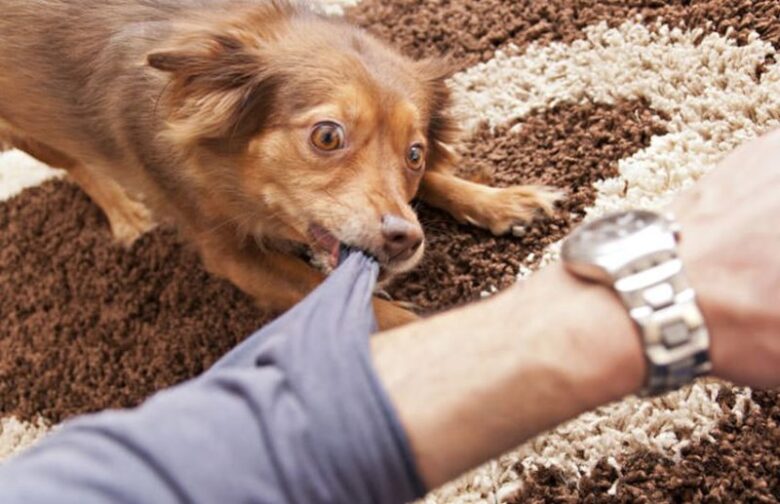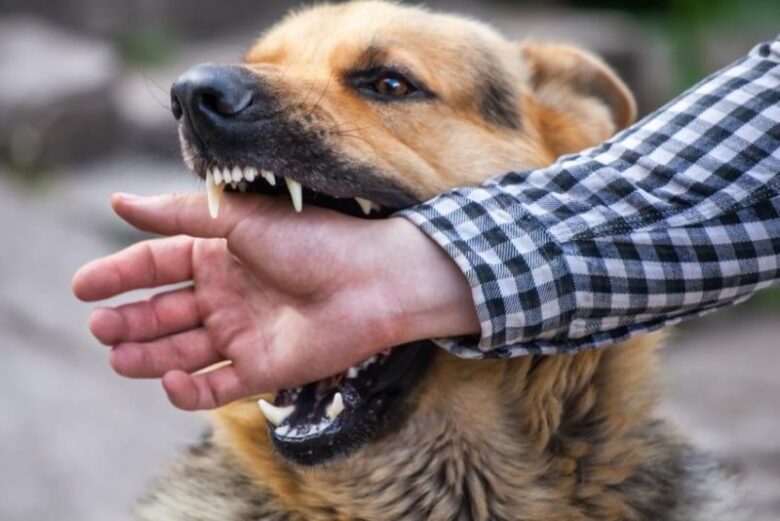Dog Bites in the US
According to the Center for Disease Control (CDC), dog bites are fairly common in the US, with about 4.7 million bites occurring each year, and 800,000 (17%) of incidents resulting in medical care. And with over 78 million dogs in the country, there’s a huge chance that your neighbor (or you yourself) has a dog. However, if you’re reading this, it’s likely that you either had an unfortunate incident with your neighbor’s dog, or you simply wish to prepare yourself in case your neighbor’s overactive and territorial pet bites you or anyone in your family.
Why Do Dogs Bite?

First off, you have to understand why dogs bite in the first place in order to prevent it from happening, and also to see if there was negligence on the side of the owner (which will be a huge factor in the legal proceedings). Dogs often bite others (even their owners) as a reaction to a stressful situation, or if they feel threatened, and also when trying to protect their puppies and/or their owners.
Some dogs who are well-trained and behaved may instinctively bite when startled, or simply wish to playfully bite but get overexcited. If the owner can prove that you were a threat, or it was provoked, then the neighbor wouldn’t be liable for any injuries the dog has caused.
As such, let’s take a look at the steps you should take if you or your loved one gets bitten by your neighbor’s dog without any provocation or threat:
Get Medical Care (and Get Info from the Neighbor)

Contact emergency services for immediate medical care, or have someone drive you to the nearest emergency room or bite center. Even if the bite wasn’t too deep and the bleeding is minor, it’s best not to risk infection. If you can, ask (or have someone ask) your neighbor if the dog has undergone rabies vaccination, since you may have to undergo an expensive series of shots for rabies if there’s no proof of vaccination.
The World Health Organization has deemed rabies to be almost always fatal, and 99% of rabies transmission cases are due to bites from domestic dogs. At this point, while you’re being treated, it’s best to take photos of the wound, any damaged belongings, and take note of all the details (so you won’t forget it later on when you’re filing).
File A Report

After you’ve been provided the necessary medical attention, you should immediately file a dog bite report to your local authorities. This helps them prevent any future attacks, and also serves as a legal document if you would decide to file a case in order to be compensated for damages (medical expense, lost income, disability/scarring, and emotional suffering, as well as any personal property or belongings that was destroyed/damaged during the bite.
Talk to the Neighbor
It’s quite possible that you’re close friends (or even related to) with the pet owner, so they may be inclined to avoid pressing charges. It’s considered a best-case scenario if you can talk to your neighbor and they agree to help you out with the medical bills (and other damages) and promise to prevent the incident from reoccurring. However, not all neighbors can are as amiable; in fact, many bites are done by dogs who have bad owners. As such, if no agreement has been made or the neighbor is adamant that it wasn’t their dog’s fault, you can proceed with the next step.
Call An Attorney

In order to help you with the case and assist you in claiming compensation for injuries, lost work, and other damages, it’s best to contact experts that specializes in these types of cases. Some personal injury attorneys who focus on bite cases are unofficially called “dog bite lawyers”. They will be able to help you build your case, and also gather the evidence needed — if you’ve managed to document the attack and its aftermath with photos and police report, it can go a long way in building your case. According to William R. Rawlings & Associates, another common reason people contact an attorney after a dog bite injury is for help navigating tricky situations, for example filing a claim against the insurance of a neighbor or friend.
Conclusion
Dog bites are quite common, but not everyone knows what to do when it happens, which is why it’s best to take note of these steps, and also to be aware as to why these bites occur in order to avoid them in the future.


